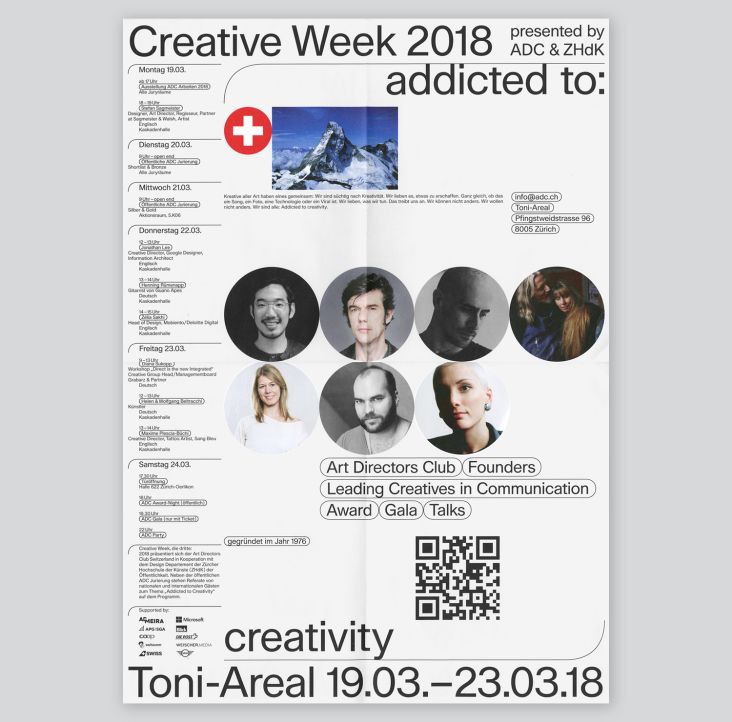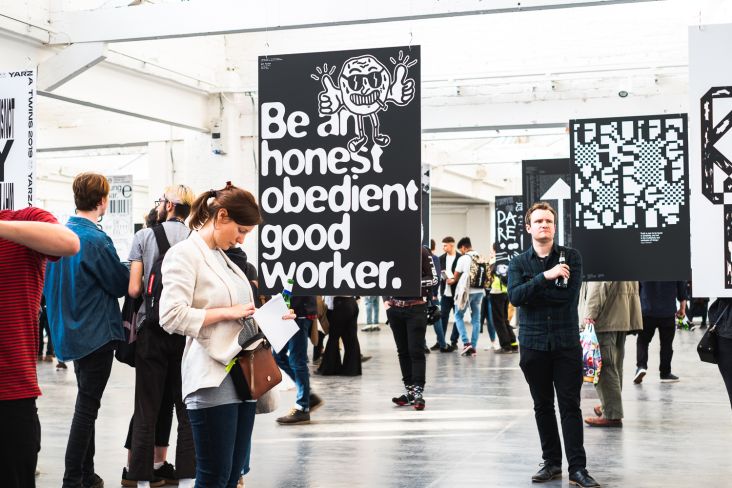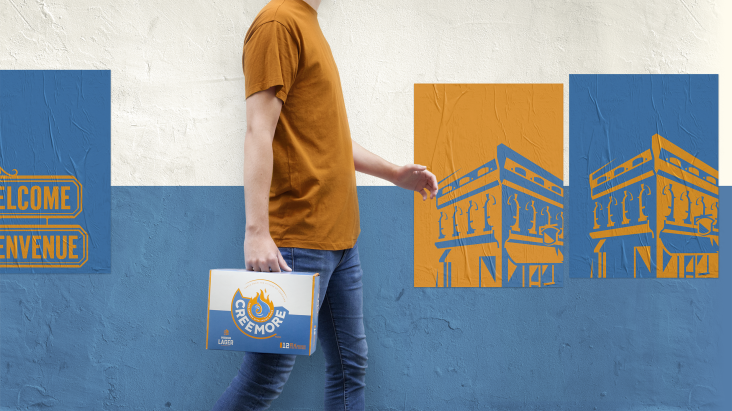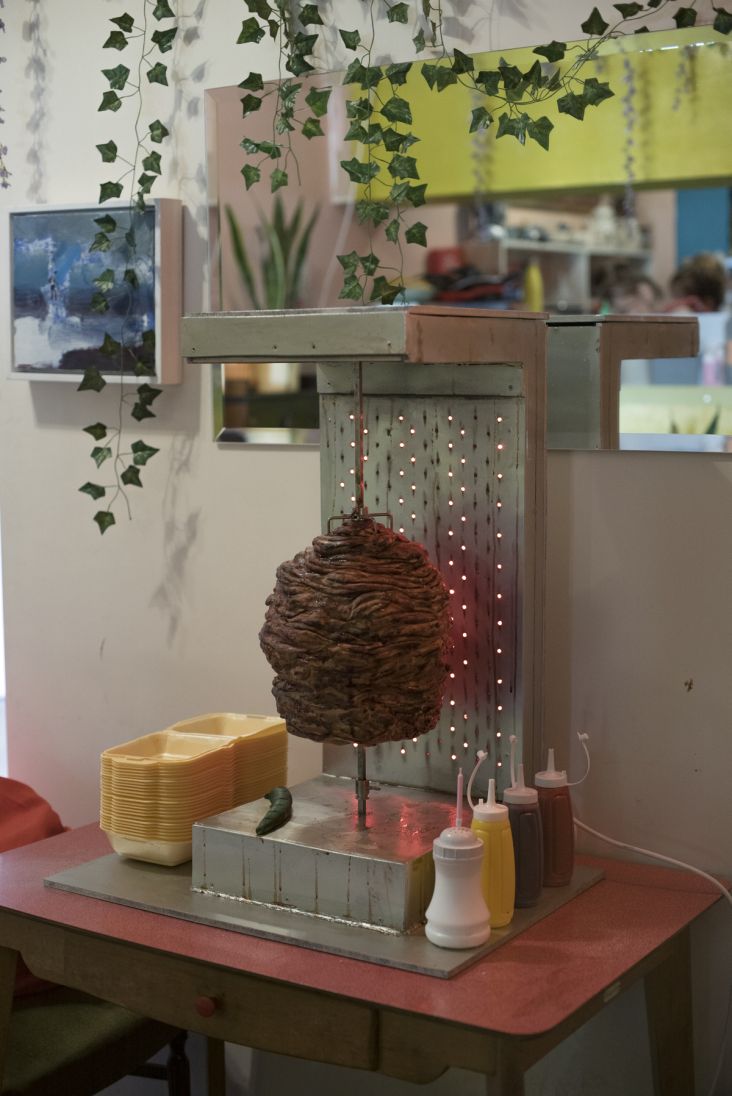The 9 things I’ve learnt about mental health from working in the creative industries
Mental health has (sadly) been a popular topic of late. Not just on Creative Boom either. The subject is trending on social media as more of us start an honest conversation about our own experiences. Holly Kielty, creative strategy director at Design Bridge, gives us her perspective.
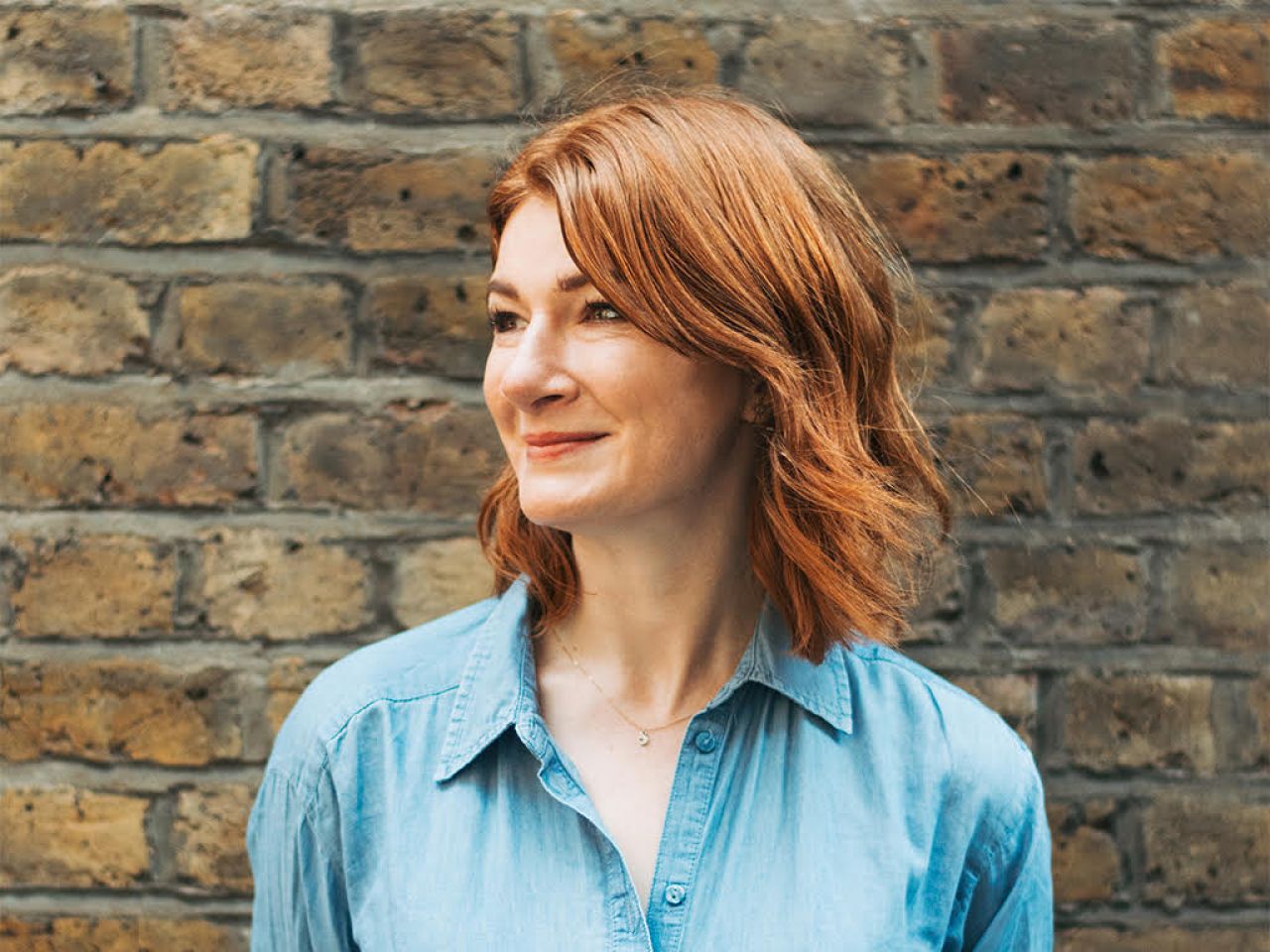
Holly Kielty. Image courtesy of Design Bridge
Anxiety, stress, depression, loneliness and isolation – we're all at risk of suffering from these common afflictions. It's just that it's taken a while to open up about them. But the more we talk about it, the more we expel any taboos on mental health and the better we all are. These are the nine things I've learnt about mental health from working in the creative industries.
1. You are not your thoughts
Being a creative professional has taught me that your brain is a muscle. It works hard. It produces ideas and tortures them, sometimes at weird times of the night. But the thoughts it provides do not define you. Just as you might think of an ad involving a snail on a motorbike, assuming that you are rubbish at your job is not a fact.
The more I put ideas down on a blank page for others to judge; I realise that what the brain produces is separate from who you are. As different as that piece of paper. So next time you batter yourself with negative thoughts, remember, they are just thoughts, not realities.
2. Being a people pleaser isn’t that pleasing for anyone
As a creative, your job is to create pleasing things. Things that make people laugh think, buy products. Second-guessing what a client or audience might want from your ideas is part of the job. But second-guessing everyone’s opinion in all aspects of life is exhausting and wastes precious time.
So face your fears. Trust your instincts. Don’t tell people their ideas are ‘worth exploring’ when you know they’re not because you think that’s what they want to hear. You are, with the best intentions, being dishonest. They will waste energy, and when that idea fails, they’ll question your judgement.
Stay true to yourself. You can be pleasant, but don’t compromise on who you are, don’t dilute your expertise with platitudes. You’ll go home shattered and confused, much like the people you’ve been ‘pleasing’.
3. There’s magic in the making
We all want to create that impressive result. We want the WOW moment. But remember the life-affirming nature of the process – the thinking, the jotting, the illustrating, the selling. That’s the game – and it’s worth enjoying. It can be weirdly meditative to think of headlines all afternoon. That kind of thinking places you at the moment. So yes, have the result in sight, but don’t forget to relish all the tiny moments of 'creating' that will get you there; they’re the moments where we truly thrive.
4. Asking for help is always a good idea
We’ve all thought about it: "I just can’t". There’s no rational explanation, but our minds are not playing ball anymore. At these moments, your internal dialogue isn’t always to be trusted. So refer to our industry; In any creative project, no man is an island. We rely on each other’s empathy and encouragement. So when things feel like they’re becoming unmanageable, do what you would do in any creative project, and enlist others. Talk to someone you trust or someone who has the tools at their disposal to help you. When you articulate a feeling that’s been abstract in your head, it reconnects you as a human, and that connection may get you through the next hour.
5. Failure is a kind of success
This industry forces you to dust yourself off and try again, and that’s a great knack to have. That's because the knocks won’t stop coming. I’ve failed many times, and looking back, the outcome of my failures has mostly been positive. Regrettable job interviews have led me to the great job I have now.
Every failure is an opportunity to learn something, whether it be about your work, your relationships, or yourself. Does the client hate every route? Maybe you’ve got a clearer picture of what they need now. Has the presentation not gone well? Perhaps you could ask for some training. Fail, fail harder. That’s a much more successful way to learn than merely succeeding every time.
6. Act how you want to feel
Before a presentation, I’ve sometimes felt like diving headfirst out of the toilet window. And five minutes later I’m in front of clients, smiling, showboating, giving it my all. Not out of pretence necessarily, but because it’s how I want to come across and feel in that instance.
On the other side of that presentation, I’m usually skipping down the corridor back to my desk. I’ve had to change how I behave and how I think. By simply smiling, lifting my head, and improving my posture and tone of voice, I’ve drawn myself out of the dark. Behave how you want to feel. Sometimes reframing your mood is incredibly powerful. And on that note.
7. Anxiety and excitement are sometimes the same
I spend a significant amount of time trying to read people’s reactions. But the one thing I’ve learnt is that knowing your own emotions and how to react to them is invaluable. Both anxiety and excitement produce many of the same neurological responses. One is seen as positive, the other negative.
So say you’re feeling anxious at the start of a project and try to tell yourself instead that it’s excitement at what’s ahead. Reframe the sweating palms, the increased heart rate and restlessness as the thrill rather than a threat. Switching the thinking may make you feel much more optimistic, and help you harness the exact emotion you need for the job.
8. Be vulnerable and allow others to do the same
Bravado and brilliance don’t go hand in hand. Some of the very best Creatives I’ve worked with have freely admitted to fear, anxiety and lack of confidence. It makes them human; it makes them better able to understand people’s behaviours; it makes them more open to different ways of thinking. You got into this industry because you didn’t want to be a machine, so don’t behave like one. Ask for clarification if the brief’s baffling. Admit when you’ve had a day where the ideas didn’t flow despite your best efforts.
By creating a culture of empathy, this industry will only thrive, because it revolves around people’s primal wants, needs and fears. The longer I spend in the creative industry, the more I believe in empathy as essential to commercial success. The more we can all understand each other, the better our work will be. And bit by bit, we might well make this world a better place, for every person, in every industry.
9. Your brain is your finest tool, so care for it
We invest a lot in the tools we need for our jobs. The pens, the laptops, the training. But the one thing that truly deserves our investment is our mind. We neglect our minds so much. We put them under pressure, use them constantly and keep them up all night.
Our mind has to be tended to function. The right amount of sleep. Exercise. Therapy. Moments to shut off and be still. Nutrition and medication, where needed. When times get tough, check in with your brain and assess its health. And give it the attention it deserves. It’ll pay you back in dividends.
](https://www.creativeboom.com/upload/articles/c0/c0f4833513a758427120283374013d6da0e2b37d_732.png)














